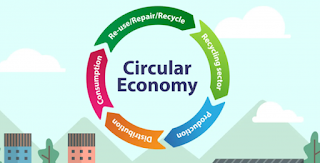Zero-Waste Solutions
“Do what is right, not what is easy for the environment.”
Going to zero is not just living without plastic, but also living without producing garbage, avoiding everything that needs to be thrown away and that could end up in a landfill, in the ocean, or any other uncontrolled environment.
On average, the urban population of 377 million inhabitants produces a whopping 62 million tons of garbage annually, of which only 70% is observed and the remaining 30% are mixed and lost in the urban environment. Of the total amount of collected waste, only 12.45% of the waste is processed, and the rest remains untreated and dumped in landfills.
The concern is serious, as growing the number of waste impacts each part of society. If we don’t look after this issue, it will not only impact individuals, communities, and the government but also the world at large.
How to Achieve Zero waste
There is no entirely sustainable product, the same way there is no truly ethical consumption under capitalism.
To achieve zero waste to our environmental crisis is by following the 4R’s Formula “Refuse, Reduce, Reuse and Recycle”- all help to cut down on the amount of waste we throw away. They conserve natural resources, landfill space, and energy. Plus, save land and money that communities must use to dispose of waste in landfills.
They are not that hard to implement. All you need is to bring a small change in your daily lifestyle to contribute towards a healthier planet.
4R’s to Zero Waste
https://www.yesfullcircle.com/
The first step is a lesson that should be applied to many aspects of life: Learning to say NO.
To reduce waste, we must learn to refuse everything we do not need. It starts with very small steps, boycotting everything that comes in plastic, mainly the single-use and disposable one like plastic bags, water bottles, straws, event goodies, and products with easy replacement by a version without plastic or without any type of packaging (fruits and vegetables, for example).
Once you start, it gets easier and easier.
Reduce
If the first rule is Refuse, the second rule is, almost automatically, Reduce. When we refuse products that are hard or even impossible to recycle, we are already reducing our consumption, which nowadays is so frenetic and unstoppable.
One thing is also going through a process of decluttering, that is, getting rid of things we do not need and reducing the number of items we have waiting for the “what if I need this someday 10 years from now”. Decluttering does not necessarily mean throwing it away, it can be repurposed in the second-hand market or be donated to those who need it or were willing to buy a new version of it.
Reuse
This could be taken in a few directions. Making some reusable swaps, like reusable bags, water bottles, or straws. Or reusing things you already have. Maybe you forgot your reusable bag and had to get a single-use plastic bag. Give it another use, perhaps as a trash can liner. Remembering reusable items may be hard but with practice, just like everything else, it gets easier.
Recycle
Last but not least: Recycle. Once you have gone through all of the other R’s, recycling is the most environmentally friendly waste disposal method. Recycling something means turning it back into a raw material that can be shaped into a new item.
Instead of dumping waste into landfills, recycle it into a useful resource and save the planet. Think about your current waste and recycling strategies, and if you want any help, we Y.E.S Full Circle are here to help you manage your waste easier and more effectively. Our Circular solutions for Waste Management approach make recycling simple and efficient.
Our objective is to implement a decentralized waste treatment facility and proper streaming of recyclables to achieve a Zero Waste Model and to ensure no waste to landfill.




Comments
Post a Comment